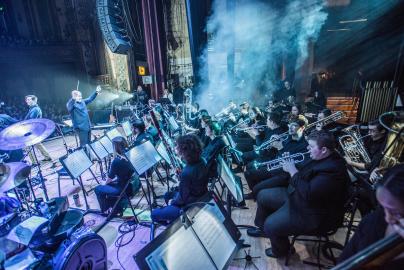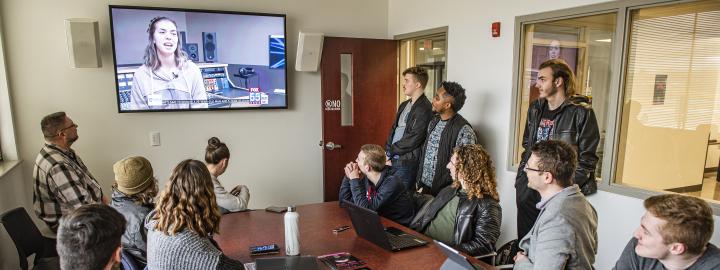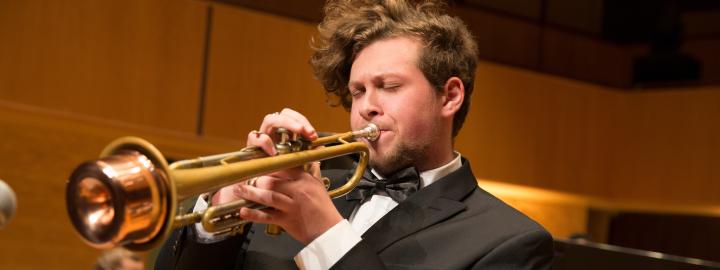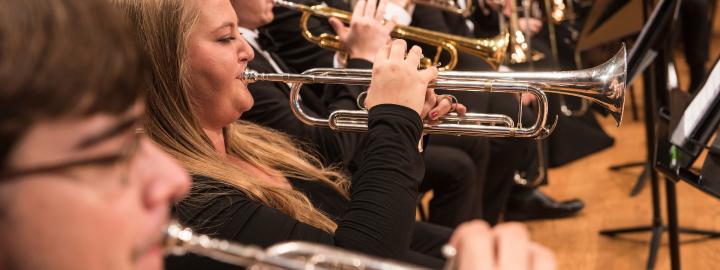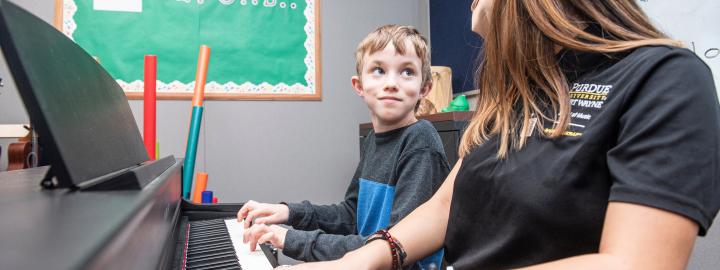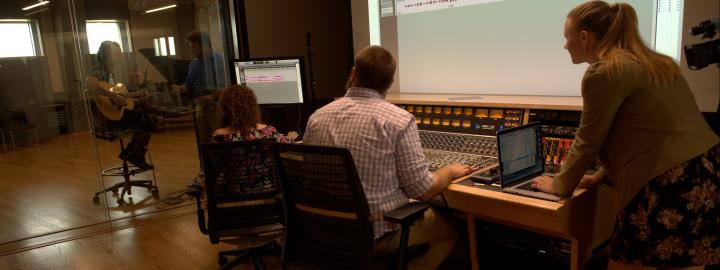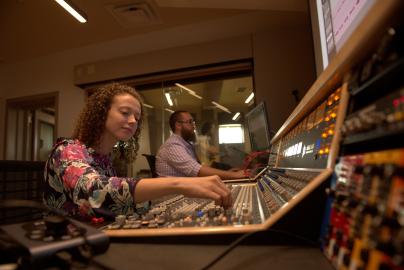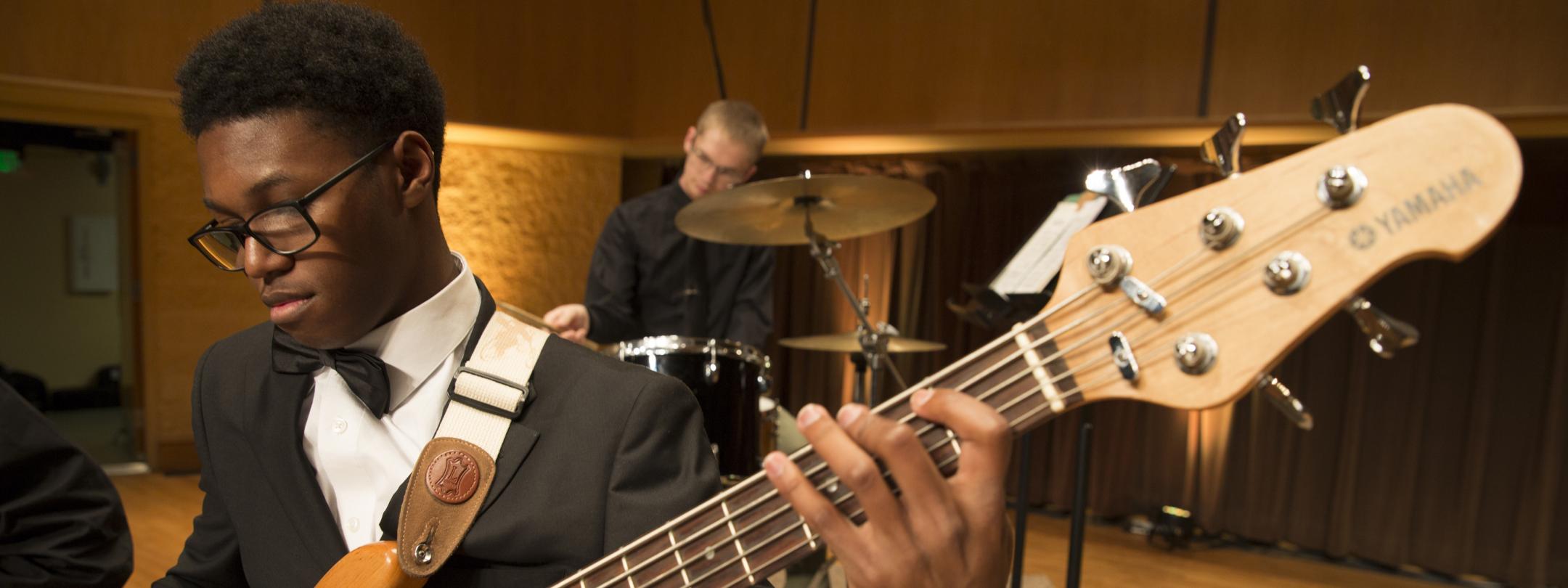
Music Programs
This is where musicians become everything they’ve dreamed.
Our degrees span all music professions, from education to performance to therapy. We also have minors in music and jazz studies.
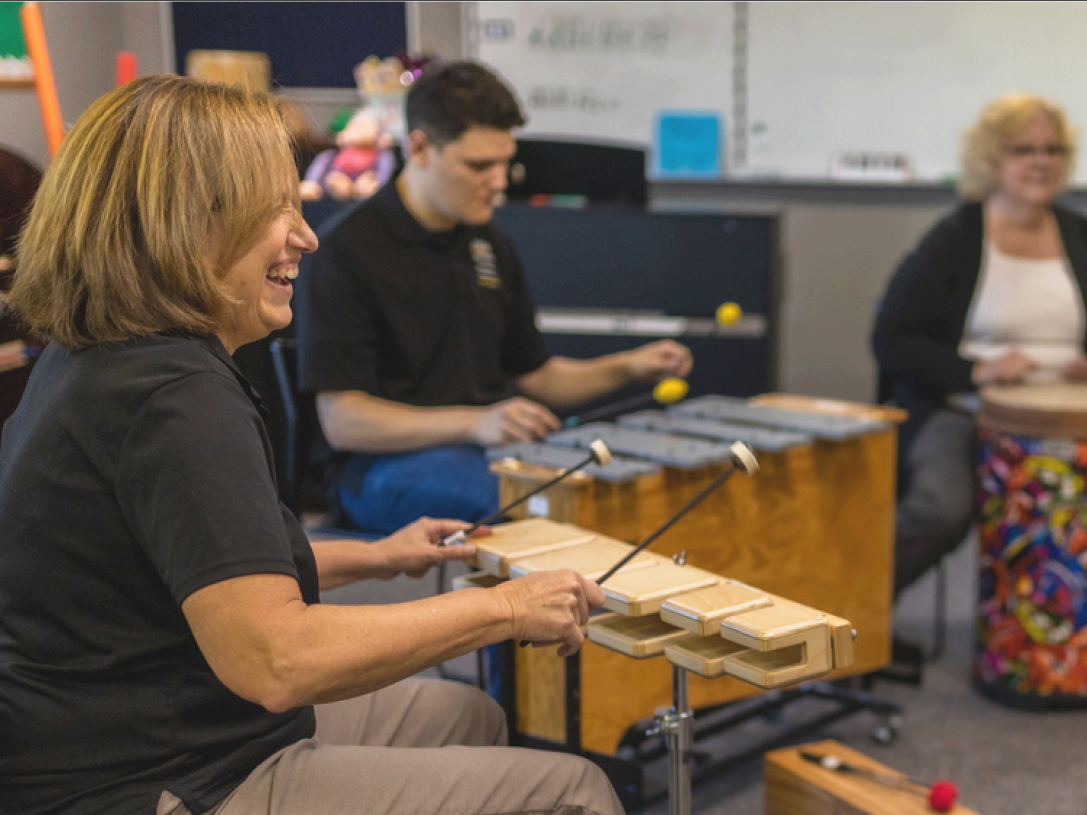
Music Therapy (B.S.M.T.)
Music therapists promote health and support growth and development for people of all ages and levels of ability by engaging them in music experiences that impact the body, mind, and emotions. Learn to focus therapeutic music processes to help clients overcome limitations, build healthier relationships, access their own empowerment, and live their best lives. Be a musician who makes a difference in quality of life for individuals, families, and communities.

Program
Highlights
Program Highlights
- Instruction in multiple approaches and orientations to music therapy
- Hands-on clinical training
- Numerous community partnerships
- Support from the Mastodon community
- A prestigious Purdue degree
career and salary data
How far will you go?
General labor market and salary data are provided by Lightcast via O*NET and may not represent the outcomes experienced by Purdue Fort Wayne graduates in these programs. Purdue Fort Wayne graduates in these programs may earn salaries substantially different or less than the amounts listed. Salary and employment outcomes vary by geographic area, previous work experience, education, and opportunities for employment that are outside Purdue Fort Wayne’s control. Purdue Fort Wayne does not guarantee employment placement, salary level, or career advancement.
Accreditation
Purdue University Fort Wayne is an accredited institutional member of the National Association of Schools of Music and the American Music Therapy Association.
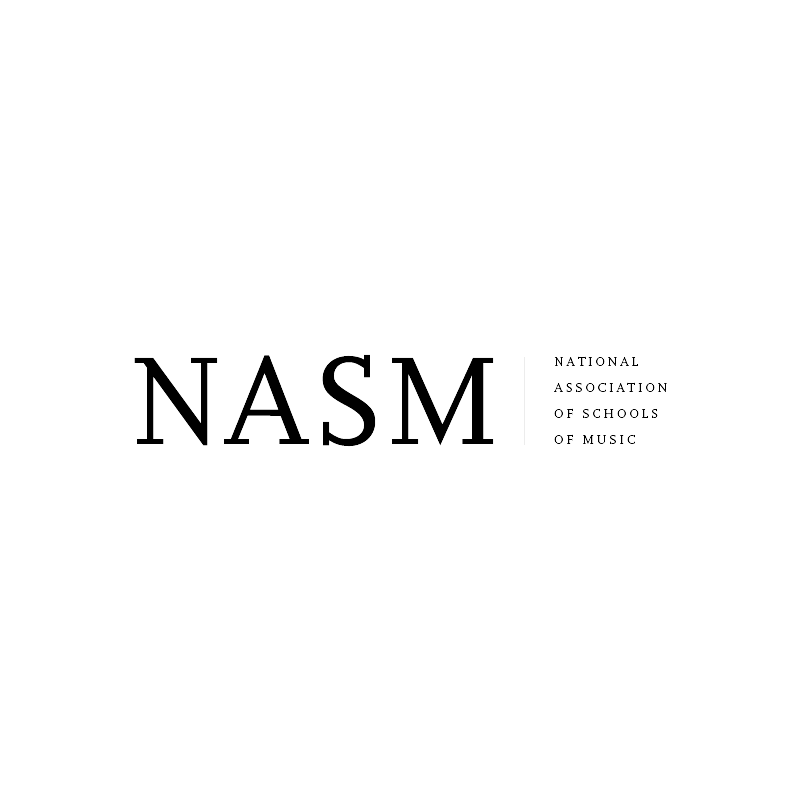
Student Learning Outcomes
Upon completion of this degree, students will be able to demonstrate the following learning outcomes:
- Sufficient competence in the field as outlined in the Professional Competencies document of the American Music Therapy Association Inc. for eligibility to sit for the national credentialing examination of the Certification Board for Music Therapists Inc.
- An understanding of ethical clinical practice, and sufficient knowledge and skills in clinical music therapy practice to properly assess client strengths and needs, to plan and implement appropriate music therapy methods for treatment, to measure and document outcomes, to evaluate treatment, and to apply professional research literature to clinical practice
- Application of knowledge and understanding of therapeutic music processes to clinical situations, including demonstration of basic competency in selecting, designing, and evaluating music therapy methods and method-variations based on the affordances, challenges, and contraindications of those choices, and in relation to a variety of health-related needs of clients in a range of clinical settings
Upon completion of this degree, all School of Music students will be able to demonstrate the following learning outcomes:
- Knowledge of music theory sufficient to analyze musical forms, structures, and styles to create within basic musical structures; and to relate theoretical concepts to sound
- Performance ability as ensemble members, as conductors, and as soloists on both a primary instrument and a secondary instrument
- Knowledge of history and literature of Western and non-Western music, with an understanding of the social, political, and cultural impacts that shaped music history
- Proficiency in utilizing appropriate technology to notate and create music, to investigate and report scholarly research, and to support the specific demands of the professional degrees
- Music Therapist

